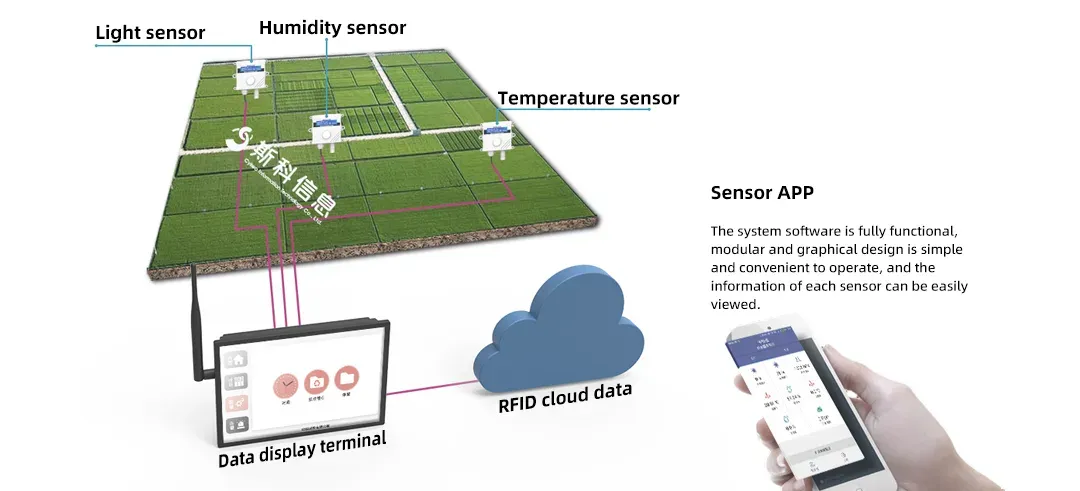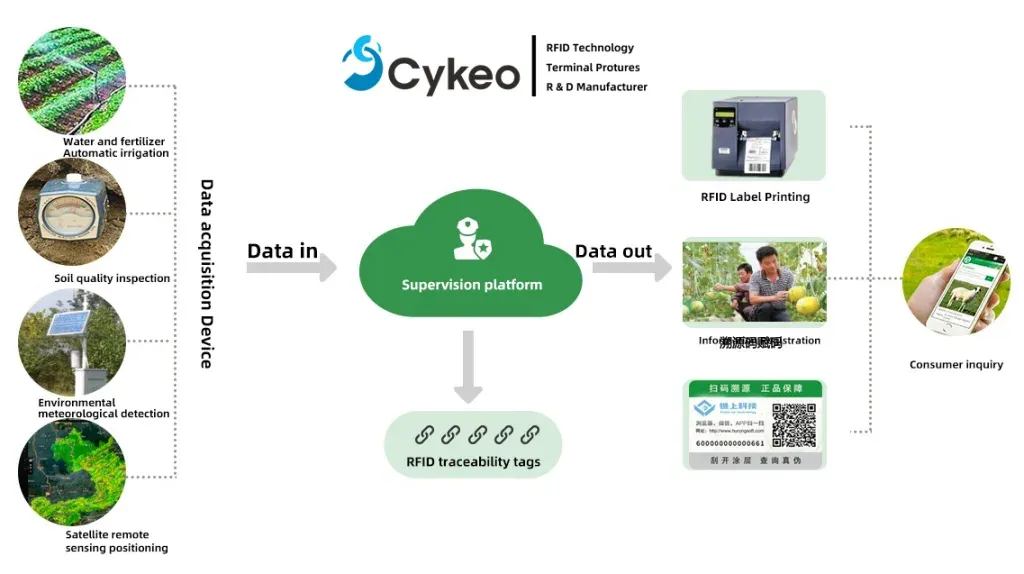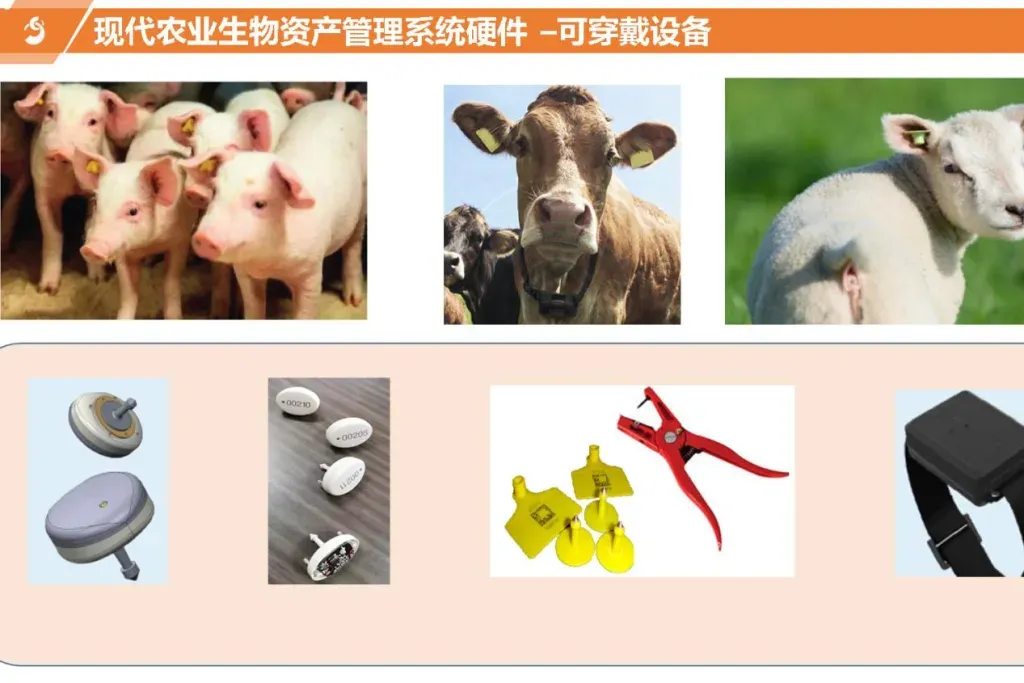Submit your request to us
We will contact you as soon as possible.
All RFID Product

With the continuous development of technology, RFID (Radio Frequency Identification) is gradually making its way into the agricultural sector. This article explores how RFID technology is being applied in smart agriculture to achieve precise crop cultivation and livestock management, and the practical implications of this technology for agricultural production. Let’s take a closer look at the potential of RFID in revolutionizing agriculture!
RFID is an automatic identification technology that uses radio waves for communication between tags and readers. With its contactless, efficient, accurate, and reliable features, RFID has found widespread applications across various industries, including agriculture. This technology enables real-time tracking and data exchange, offering a wealth of opportunities for improving agricultural practices.

Seed Management: By integrating RFID tags on seed packaging, farmers can track and manage seeds in real-time. Each seed tag contains detailed information, such as variety, quality, and planting date. Using RFID readers, farmers can quickly access these details, enhancing the accuracy and efficiency of their planting strategies.
Fertilizer Management: RFID technology allows for precise control over fertilization, ensuring the right amount of fertilizer is applied at the right time. By placing RFID tags on fertilizer packaging, farmers can access information about the type, composition, and usage recommendations for each fertilizer batch, leading to more efficient nutrient management.
Irrigation Management: In irrigation systems, RFID tags can be used to record data about watering times, quantities, and frequencies. Farmers can adjust irrigation strategies based on soil moisture levels and crop needs, optimizing water usage and enhancing sustainability in farming.

Animal Traceability: RFID tags can be attached to livestock to track their entire lifecycle, from birth to slaughter. This traceability ensures farmers have detailed data on each animal’s growth and health, improving the management of breeding, health care, and productivity.
Feed Management: RFID technology can also help manage the flow of feed. RFID readers installed at feed warehouse entry and exit points automatically track the movement of feed, recording essential details like type, quantity, and production date. This enables farmers to adjust feed schedules according to the specific needs of the animals.
Disease Prevention and Control: RFID technology assists in early disease detection by allowing farmers to quickly access an animal’s history and health data. If any unusual behavior or symptoms arise, RFID readers can retrieve critical information, enabling timely interventions and minimizing disease outbreaks.
Improved Efficiency: RFID enables automated, precise management of agricultural practices, reducing human intervention and minimizing errors. This results in more efficient operations and higher productivity.
Cost Reduction: By optimizing resource usage in both crop cultivation and livestock management, RFID helps reduce waste of agricultural inputs like seeds, fertilizers, and feed. As a result, production costs are lowered.
Enhanced Product Quality: The traceability feature of RFID technology ensures consumers can verify the entire production process of agricultural products, increasing product credibility and quality assurance.
Adaptation to Market Demands: RFID technology helps farmers respond swiftly to market demands and consumer preferences. By tracking production trends and market needs, farmers can adjust their planting and breeding schedules to maintain a competitive edge.
Advancement of Agricultural Modernization: The integration of RFID technology into agriculture accelerates the modernization of farming practices. It raises the technological level of agricultural production and contributes to sustainable development in the sector.
RFID technology has become a key enabler of smart agriculture, facilitating precision in both crop cultivation and livestock management. Through its application, farmers can boost efficiency, reduce costs, improve product quality, and better align with market trends. As technology evolves and market demands shift, RFID’s role in agriculture will only continue to expand. With ongoing innovation, RFID technology promises to play a crucial role in the sustainable development of the agricultural industry.
About Cykeo: Your RFID Project Partner
Dedicated to RFID terminal product R&D manufacture.
Assisting software system integrators to bring the projects to reality.
At Cykeo, we specialize in the development and manufacturing of RFID terminal products, and we collaborate with software system integrators to bring your projects to life. With a comprehensive range of RFID modules, RFID control modules, RFID antennas, and IoT RFID solutions, we turn possibilities into realities.
With years of manufacturing experience and expert knowledge in solution services, we provide free SDKs and open terminal APIs, assisting software and system integrators worldwide. Our trusted support empowers integrators to confidently tackle every project challenge. Turn your project vision into reality with Cykeo. Contact Us Now.
*Above text content, the picture is only for description, if there is infringement, please contact webmaster.
发表回复